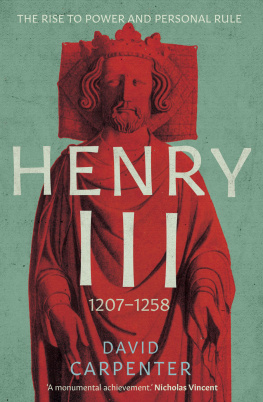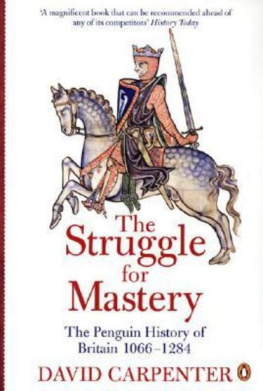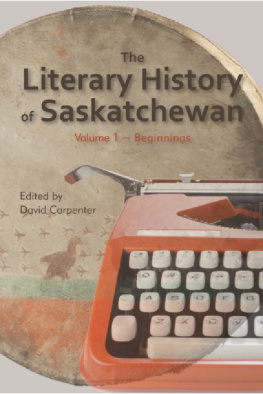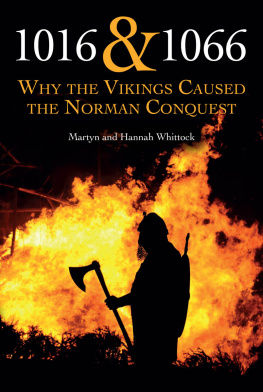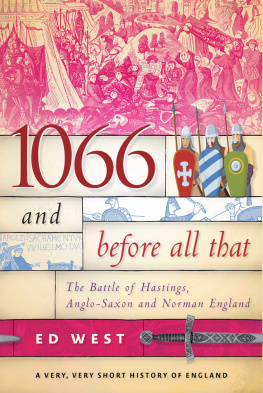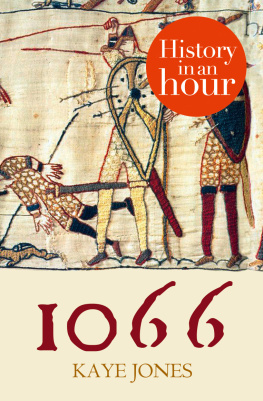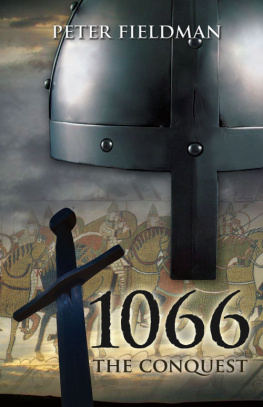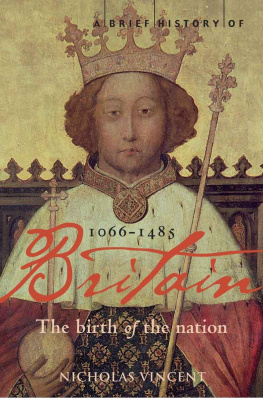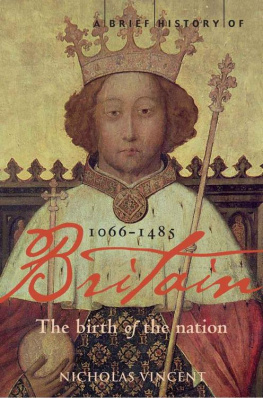THE PENGUIN HISTORY OF BRITAIN
General Editor David Cannadine
The Struggle for Mastery
THE PENGUIN HISTORY OF BRITAIN
I: DAVID MATTINGLY Roman Britain: 100409
II: ROBIN FLEMING Anglo-Saxon Britain: 4101066
III: DAVID CARPENTER The Struggle for Mastery: Britain 10661284
IV: MIRIAM RUBIN Britain 12721485
V: SUSAN BRIGDEN New Worlds, Lost Worlds: Britain 14851603
VI: MARK KISHLANSKY A Monarchy Transformed: Britain 16031714
VII: LINDA COLLEY A Wealth of Nations? Britain 17071815
VIII: DAVID CANNADINE The Contradictions of Progress: Britain 18001906
IX: PETER CLARKE Hope and Glory: Britain 19011989
DAVID CARPENTER
The Struggle for Mastery
BRITAIN 10661284
ALLEN LANE
an imprint of
PENGUIN BOOKS
ALLEN LANE
THE PENGUIN PRESS
Published by the Penguin Group
Penguin Books Ltd, 80 Strand, London WC2R 0RL, England
Penguin Putnam Inc., 375 Hudson Street, New York, New York 10014, USA
Penguin Books Australia Ltd, 250 Camberwell Road, Camberwell, Victoria 3124, Australia
Penguin Books Canada Ltd, 10 Alcorn Avenue, Toronto, Ontario, Canada M4V 3B2
Penguin Books India (P) Ltd, 11, Community Centre, Panchsheel Park, New Delhi 110 017, India
Penguin Books (NZ) Ltd, Cnr Rosedale and Airborne Roads, Albany, Auckland, New Zealand
Penguin Books (South Africa) (Pty) Ltd, 24 Sturdee Avenue, Rosebank 2196, South Africa
Penguin Books Ltd, Registered Offices: 80 Strand, London WC2R 0RL, England
www.penguin.com
First published 2003
1
Copyright David Carpenter, 2003
The moral right of the author has been asserted
All rights reserved. Without limiting the rights under copyright
reserved above, no part of this publication may be reproduced, stored in
or introduced into a retrieval system, or transmitted, in any form or by any
means (electronic, mechanical, photocopying, recording or otherwise),
without the prior written permission of both the copyright owner
and the above publisher of this book
ISBN: 978-0-14-193514-0
Contents
List of Maps and Genealogical Tables
MAPS
(pp. xiiixxi)
The counties of England
The regions of Scotland and northern England
The structure of the early Scottish state
Royal Scotland: expansion and administrative change
The regions and political divisions of Wales
Wales by c. 1200: the ebb and flow of Anglo-Norman power
The Edwardian settlement of Wales, 127795
The English expansion in Ireland
The continental possessions of the English kings after 1066
GENEALOGICAL TABLES
(pp. 53140)
The rulers of England: the English line
The rulers of England: the Norman line
The rulers of England: the Angevin line
The rulers of Scotland
The dynasty of Gwynedd
The dynasty of Deheubarth
The dynasty of Powys
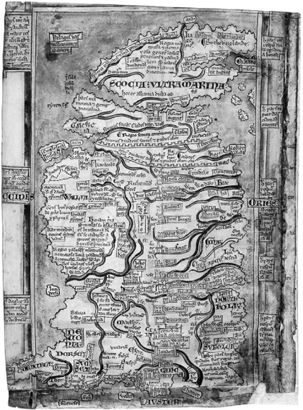
A mid-thirteenth-century map of Great Britain by Matthew Paris (British Library)
Preface
From the Norman Conquest of England to the English Conquest of Wales is the narrative span covered by this book. The one began with Duke William of Normandys landing in 1066, the other concluded with Edward Is Statute in 1284 which laid down the future government of Wales. At first sight it seems a very Anglo-centric period. The Normans master England and gradually become English. The English then master Wales before proceeding, at the end of the thirteenth century, very nearly to master Scotland as well. But this is only part of the story. After 1066 English monarchs gave far higher priority to their continental lands than they did to the intensification of their overlordship over Britain. This left plenty of space for the ambitions of the kings of Scotland and the Welsh rulers. The Struggle for Mastery in the books title is the struggle not for a single mastery of Britain but for different masteries within it. The kings of Scotland aspired to bring much of northern England into their realm and for a while managed to do so. In other directions they expanded their power more permanently, thus creating the territorial extent of modern Scotland. The Welsh rulers strove both to recover areas lost to Norman conquerors, and assert dominion over one another. The princes of Gwynedd in the thirteenth century fashioned a principality of Wales in which they subjected all the native rulers to their authority. It was only in the last quarter of the thirteenth century that these separate masteries were swept away and replaced briefly by a single English mastery of Britain.
The book begins with two thematic chapters about the peoples and economies of Britain, the former dealing with questions of national identity. There are also two later thematic chapters, one about society, and the other about the church and religion. Between and around these chapters, the spine of the book is provided by a political and governmental narrative, beginning with chapter 3. Some readers attracted by the story may prefer to begin there. The narrative offered is very much British in its form. Wales and Scotland appear for their own sake, not just when relevant to England. Sometimes their histories are treated in separate chapters, notably chapters 3 and 16, and sometimes integrated within chapters which also deal with the affairs of England. The plan throughout, rather than dividing the book into long separate sections about England, Scotland and Wales, has been to interlink their histories, showing how they were connected and how they moved together. The book also covers the English intervention in Ireland in the 1170s, and the interaction thereafter of English and Irish politics. Within the chapters which also deal with English affairs, asterisks show where sections on Wales, Scotland and Ireland begin. Asterisks are also used to indicate changes of subject matter within sections on England. Readers wishing to pursue separate themes will be able to do so with the help of the index.
British history in this period was the reverse of being self-contained. This book also reflects on how its course was influenced in new and fundamental ways by continental connections and developments, the theme of R. W. Southerns classic essay Englands first entry into Europe. England, Scotland and Wales were all, in varying degrees, affected by the papal government of the church, the new international religious orders, the learning of the European Schools, the business of the crusade, and the castles, cavalry and chivalry of the Frankish nobility. Britain was also linked to the continent as never before by the way the ruling dynasty in England down to 1204 also ruled Normandy and after 1154 Anjou and Acquitaine as well. One consequence in England was the development of uniquely powerful institutions of government to keep the peace in the kings absence and raise money to support his continental policies, a system which itself created an equally unique critique of that government, culminating in Magna Carta. If there is a watershed in British history during this period it was also provided by a continental event, the English kings loss of Normandy and Anjou in 1204, which for the first time since 1066 confined him largely to England. As a consequence, he was able to devote far more time than before to the matter of Britain. The eventual conquest of Wales later in the thirteenth century was the result.
The book is based partly on my own reading of the primary sources and partly on the secondary literature. The amount of work produced by historians in recent years has been truly remarkable. It has invigorated the old history of the period, the history of politics and the constitution, law and government, church and state, about which scholars have written since the days of Stubbs and Maitland in the nineteenth century. It has also opened up a series of new histories, examining the theory and practice of queenship, the position of women, the commercialization of the economy, the predicament of the Jews (expelled from England in 1290), the standard of living of the peasantry, the emergence of the gentry, the changing structures of magnate power, the transition from memory to written record, the nature of national identity and the relations between England and the rest of Britain. The work of historians underlies what is said on every page. Because my debt is so large, to have recorded it in detail would have made an already long book impossibly longer. In the Bibliography I have, therefore, given a broad indication of the primary sources and then made suggestions for further reading. A full account of the secondary sources will be found under my name on the Kings College London History Departments web site: www.kcl.ac.uk/history.
Next page

